Written 2011-05-03, in Tsawwassen , British Columbia , Canada
ON THIS DAY, 28 YEARS AGO, MY MOTHER DIED. She died in Kimberley , South Africa Victoria , British Columbia , Canada
I received the news just as I was leaving for work, took it calmly, telephoned my children and went on my way. I remember sitting in Zeller’s coffee shop, of all places, when it hit me.
As I sat there munching my sandwich, I heard a tune—no words, just a melody—and it moved me so deeply that I burst into tears, oblivious of the lunch hour crowd around me. I still can’t hear ‘When a child is born,’ without thinking of my mother and the day she died.
Perhaps I wept from guilt, rather than sorrow. I had, after all, come away from the country of my birth, and left her—just as earlier generations of her family had done to theirs in the past. But she was in good hands. My sister and my brother-in-law, an Anglican priest, took great care of her, and it was so typical of her that she waited until they had left on a short and well-deserved vacation, to slip away without any fuss…without a sound.
Because she never got over the death of her own mother at the age of thirty-three, when she, herself, was only thirteen, we would constantly be reminded of the fact that we should “appreciate your mother while you have her. You’ll be sorry when she’s gone!” During her visit to Canada in 2000, I heard for the first time, from my sister, of the day when our mother was incarcerated—in the prison known as the Johannesburg Fort—together with her mother and grandmother, who were later taken to a concentration camp where the grandmother died. She was eight years old, and her brothers and sisters much younger than she. By the time they returned to their farm, after the end of the Boer War, it had been reduced to ashes at the command of Roberts, and her mother’s health had been compromised in the camp to the extent that she was dead within five years.
Some time ago, as I was putting the finishing touches to this manuscript, I suddenly experienced what North Americans very glibly refer to as an “epiphany”. I had spent weeks in the company of my Huguenot characters, and, all at once, I could look back down the centuries to the flight and consequent trials and tribulations of some of those persecuted people— my mother’s ancestors. I thought with great sorrow of their continual battle for peace and safety, against relentless odds and constantly changing enemies. I could finally understand my mother—more than that, appreciate her—and share her pride in the Boer general, Piet Joubert, and her grandfather, the illustrious and greatly admired Francois Joubert—who, respected by friend and foe, alike, was known to the British as “Frank Hero” and to the Boers as “Frans Held.”
For her sake, I sat down to write an epilogue to my book, ‘Storm Water’—at the last moment, when it was ready to go to the printers; and then, also to honour her, at the eleventh hour, I impulsively introduced into this manuscript another Joubert, an  ancestor who -- having escaped being burned at the stake in his homeland like so many of his Huguenot compatriots -- smuggled out of France and into South Africa, a Bible, concealed in a loaf of bread. I dedicated the book to my mom and her courageous forbears.
ancestor who -- having escaped being burned at the stake in his homeland like so many of his Huguenot compatriots -- smuggled out of France and into South Africa, a Bible, concealed in a loaf of bread. I dedicated the book to my mom and her courageous forbears.
 ancestor who -- having escaped being burned at the stake in his homeland like so many of his Huguenot compatriots -- smuggled out of France and into South Africa, a Bible, concealed in a loaf of bread. I dedicated the book to my mom and her courageous forbears.
ancestor who -- having escaped being burned at the stake in his homeland like so many of his Huguenot compatriots -- smuggled out of France and into South Africa, a Bible, concealed in a loaf of bread. I dedicated the book to my mom and her courageous forbears. I can see now that the one character trait in my mother, which annoyed me most of all, was that she made it impossible to run to her with criticism of anyone, or with tales about how someone had been mean to me. I see now how faithfully she stuck to the tenets of her faith and truly loved her neighbours as herself. She would have shared her last crust with someone who needed it—and she unfailingly turned the other cheek. Ironically her sister-in law married the aide-de-camp to Lord Roberts, and she made him welcome; my sister and I married into British families whom she loved as her own—and she died with a daily despatch from Roberts at her door…How very strange that seems to me now—and, strangest of all to the Canadians that I and my grandchildren have become—because no other plot could be found for her, she lies buried among young Canadians who died fighting her people during the Boer War. May they all rest in peace, together!






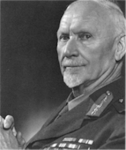.png)




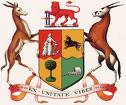


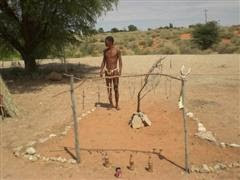.jpg)




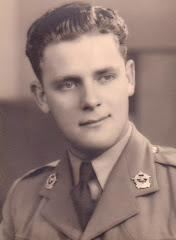

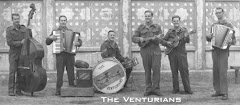


No comments:
Post a Comment